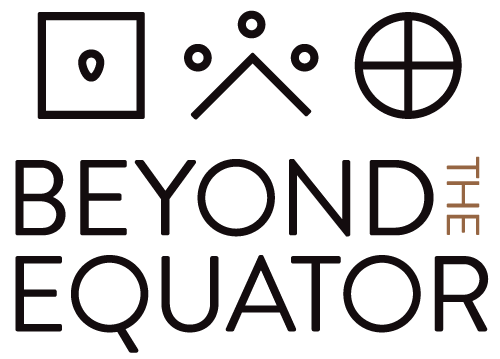Peanut butter is a staple in households across the globe and especially in the US where the PB&J is a firm favorite. The deliciously creamy, sweet, and slightly salty spread has been a favorite with families for decades. Peanuts themselves have a long history, believed to have originated in South America and brought to the new world by Spanish explorers. It was not until 1904 at the St. Louis World Fair that peanut butter made its entrance into culinary history.
A Versatile Food Source
Well before peanut butter was popularized, peanuts were grown as a commercial crop in the United States. From as early as 1800 peanut crops were grown throughout Virginia and used as food for livestock and the poor. Considered hard to cultivate and harvest, they were also used as a substitute for cocoa and oil.
PT Barnum’s famous circus furthered the popularity of peanuts, selling them hot roasted with salt. A trend that continued at sporting events, such as baseball games. The introduction of mechanical aids in the 1900s also led to the creation of peanut candies.
During periods of conflict, such as the civil war, World Wars I and II - peanuts and peanut butter became an integral part of the Armed Forces rations. According to The National Peanut Board, It is believed that the U.S. army popularized the peanut butter and jelly sandwich for sustenance during World War II.
Emergence Of Peanut Allergies
Given the prevalence of peanut allergies now, it seems strange to consider that it is only in the last two decades that peanut allergies have emerged. The reason for this rapid increase in peanut allergies is poorly understood. According to a leading medical journal:
“Food allergy accounts for about 30,000 anaphylactic reactions, 2000 hospitalizations and 200 deaths each year in the US alone [...] Peanuts are the major causative allergen with an incidence of approximately 1% of the US population, a statistic also recapitulated in Europe.”
One theory is that with the rise of vegetarian diets which are more focused on nut proteins, that pregnant and nursing mothers are ingesting more peanuts. With heightened exposure in infants, the potential for allergy arises. Yet other studies point to the opposite. The fact remains that peanut allergies are poorly understood.
Even if you are not a vegetarian, peanuts are everywhere in America and likely a part of your diet. Sales research shows that ‘peanuts, peanut butter and peanut candy are some of the most popular products in the United States. Americans eat more than six pounds of peanut products each year, worth more than $2 billion at the retail level.’
With so many at risk of allergic reactions and peanut butter being such a huge part of the American diet, Beyond The Equator decided to work on a solution.
Peanuts Vs Tree Nuts
For many, the simplest solution seems to be to eat an alternate nut- butter such as almond or cashew butter. These tree nuts are safe to consume for some allergy sufferers, however, around 30% of those allergic to peanuts will also be allergic to tree nuts. Meaning that tree nut butter replacements for peanut butter are really not a one-size-fits-all solution.
Funnily enough, peanuts are not actually nuts as their name suggests. They are classed as part of the legume family, along with peas, lentils and soybeans. Peanuts are grown underground and are considered an edible seed.
Health Implications Of Consuming Peanut Butter
Peanuts are not inherently bad for you (unless of course, you are allergic) they are full of beneficial elements. They are high in protein and fiber, healthy linoleic acids and oleic acids, minerals such as biotin, manganese, and magnesium as well as vitamins like thiamine and vitamin E. Tree nuts also contain much of these health benefits.
Unlike tree nuts, however, peanuts have been linked to gut inflammation. They are also high in saturated fats and calories. Particularly when consumed as peanut butter which has added sugar, salt and oil. If you are following a ketogenic diet, they are also high in carbohydrates, meaning you need a ketogenic peanut butter replacement.
Healthy Alternatives To Peanut Butter
Enter Beyond The Equator 5 Seed Butter. Our 5 Seed Butter is created in an environment free of the top 8 allergens, with no risk of cross-contamination. We have developed a healthy peanut butter alternative by combining 5 superfood seeds into a delicious spread. Our 5 Seed Butter contains a nutritional powerhouse, namely:
Sunflower seeds which are high in magnesium, vitamin E and protein, they can help lower blood pressure, blood sugar and cholesterol.
Chia Seeds that are high in omega-3 fatty acids and protein, fibre, magnesium, calcium, iron, copper, phosphorus, manganese and selenium.
Flax seeds, also high in omega-3 fatty acids and protein, can help lower blood sugar and insulin levels, aids in weight loss, improve skin health, and is rich in lignans which are shown to reduce the risk of certain cancers.
Pumpkin seeds, high in iron, calcium, B2, folate and beta-carotene, which the body metabolises into vitamin A. They also contain omega-3 and omega-6 fatty acids.
Hemp seeds, high in protein, unsaturated fats, and fibre. It also contains zinc, iron and the B vitamins niacin, riboflavin, thiamine and folate.
5 Seed Butter also has a higher protein content and lower carb content than nut butter. It has a similar texture and consistency to nut butter, so is an ideal replacement in recipes and as a spread. It is also low in sugar, contains no soy, is dairy-free and vegan.
How To Use 5 Seed Butter
You use 5 Seed Butter exactly as you would use peanut butter, as a spread, in smoothies, as a cereal topping and even baked into your favorite sweet snacks. With a comprehensive range of 5 Seed Butter products available, you’re guaranteed to find one that suits. Zero compromises on taste, consistency, health or nutrition - just our award-winning superfood spread.
Meaning you can enjoy everything you loved about peanut butter in a safe, nutritionally dense alternative. It’s a simple and delicious switch that is completely peanut and tree-nut free - so you need never feel deprived of that PB&J again.

